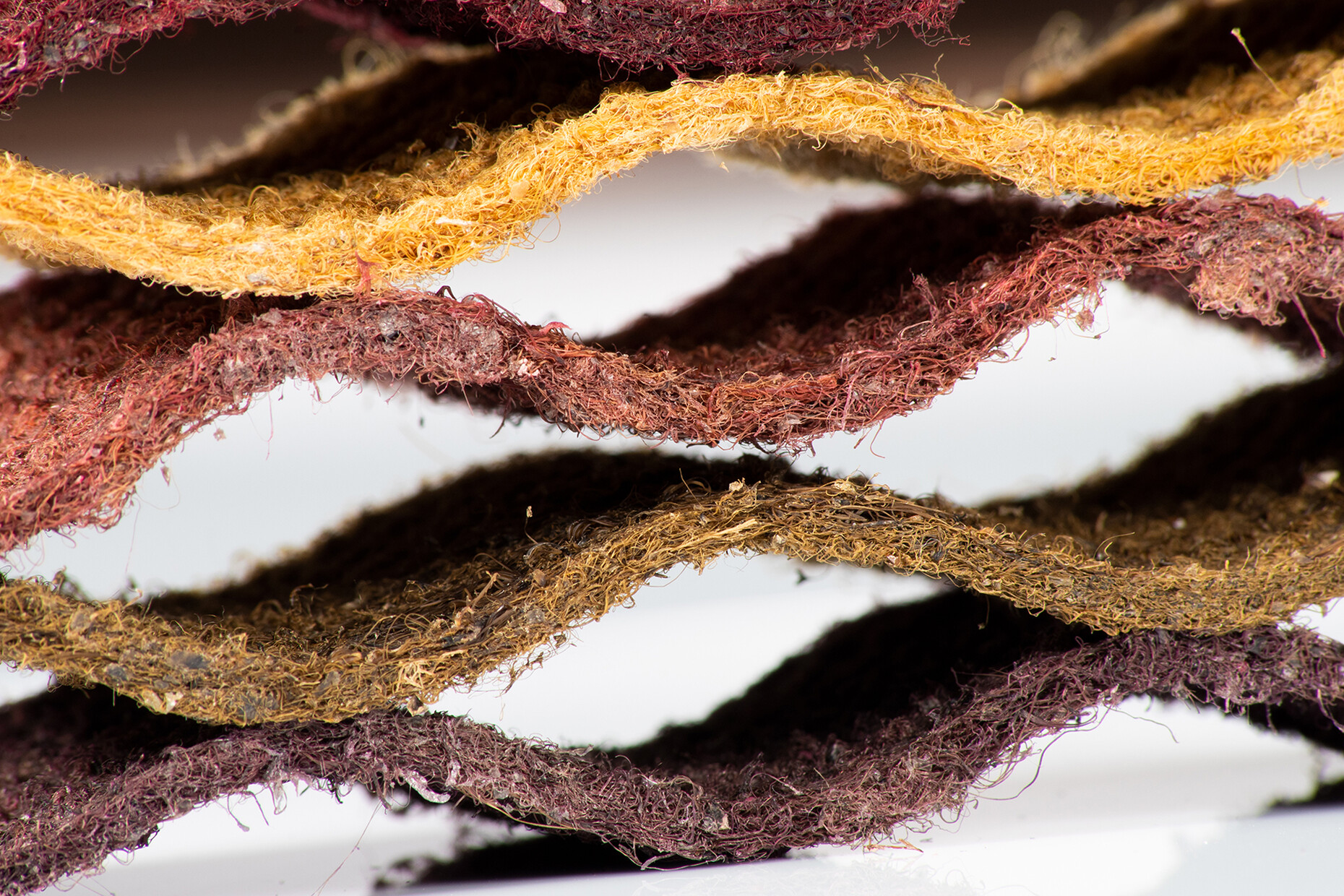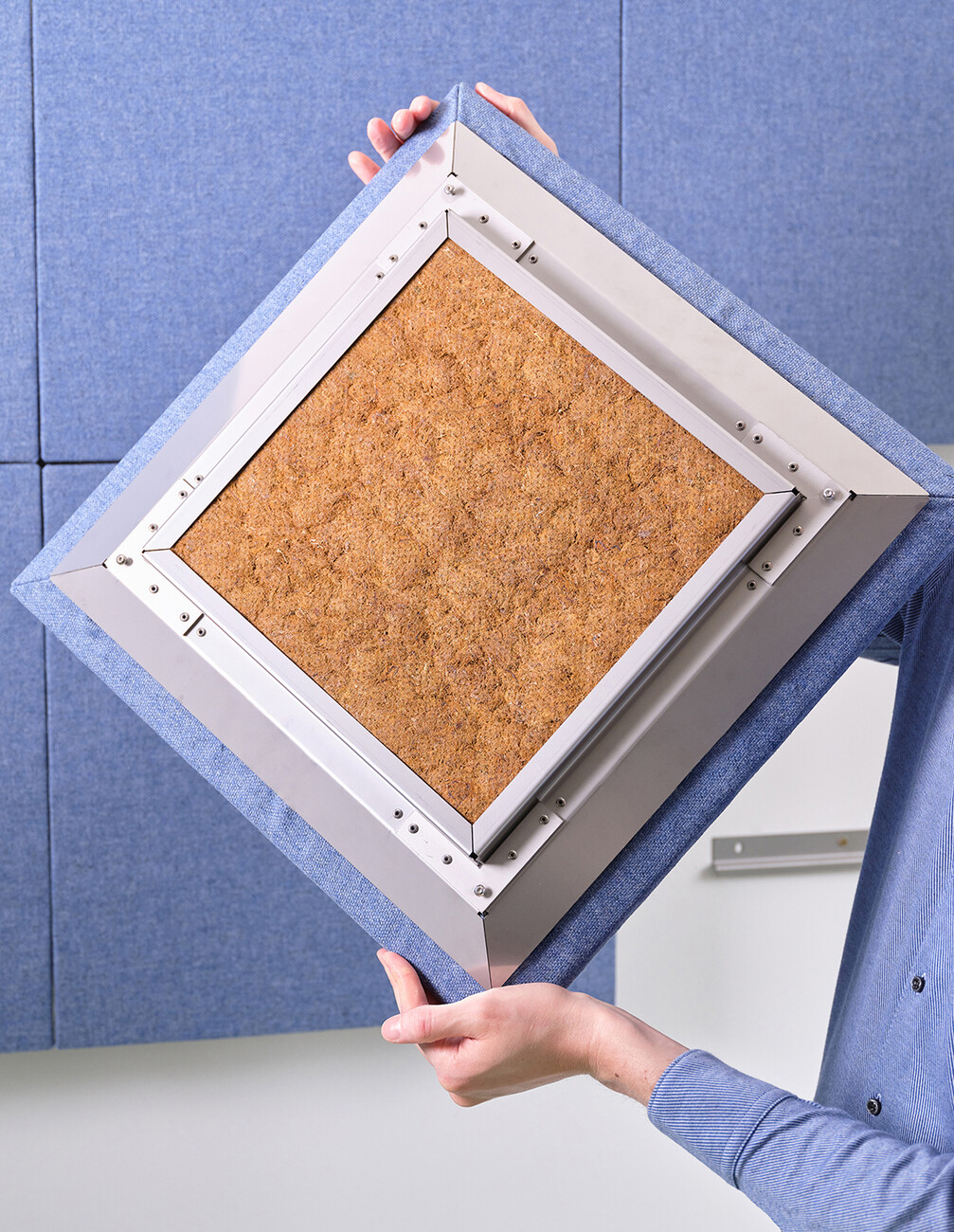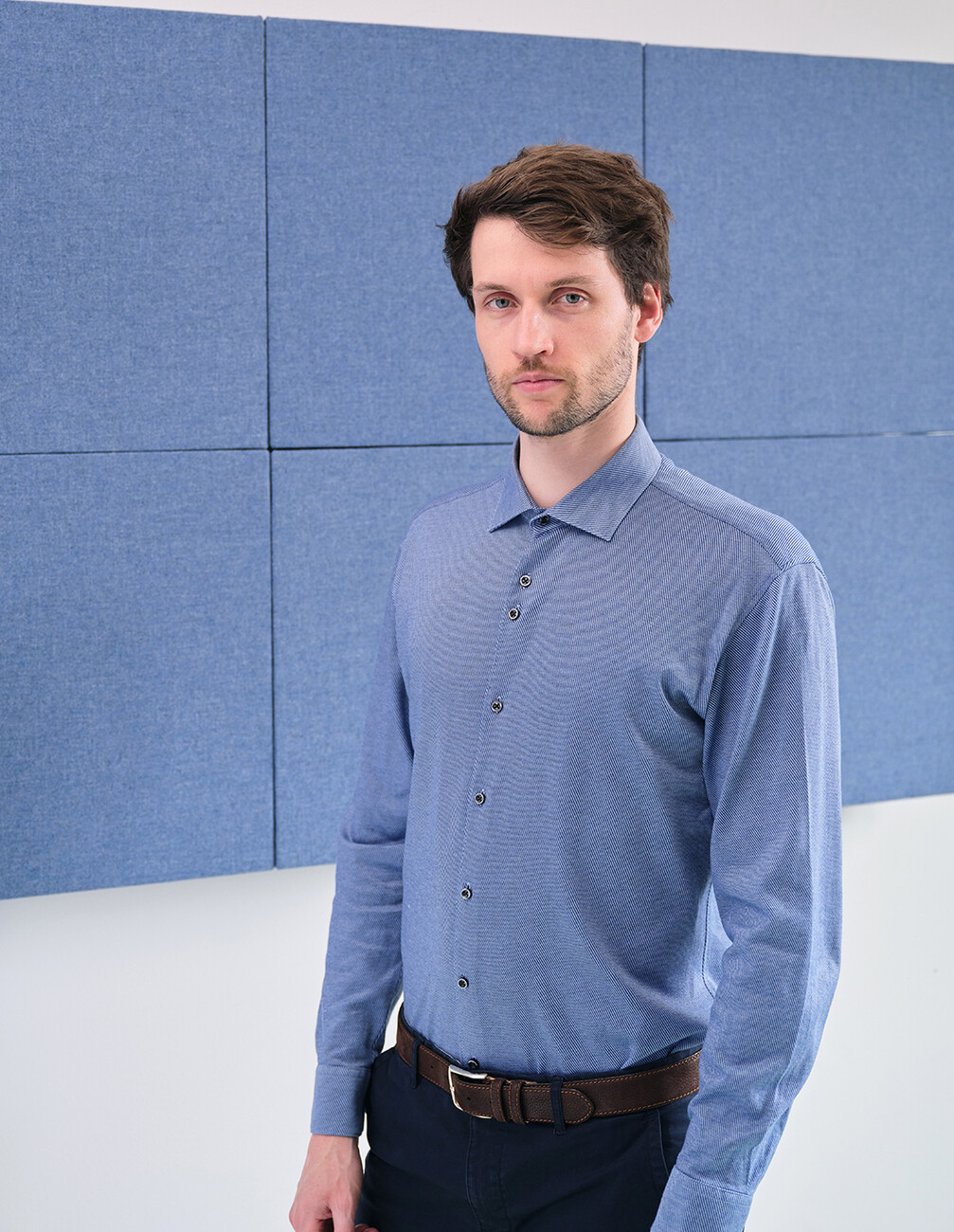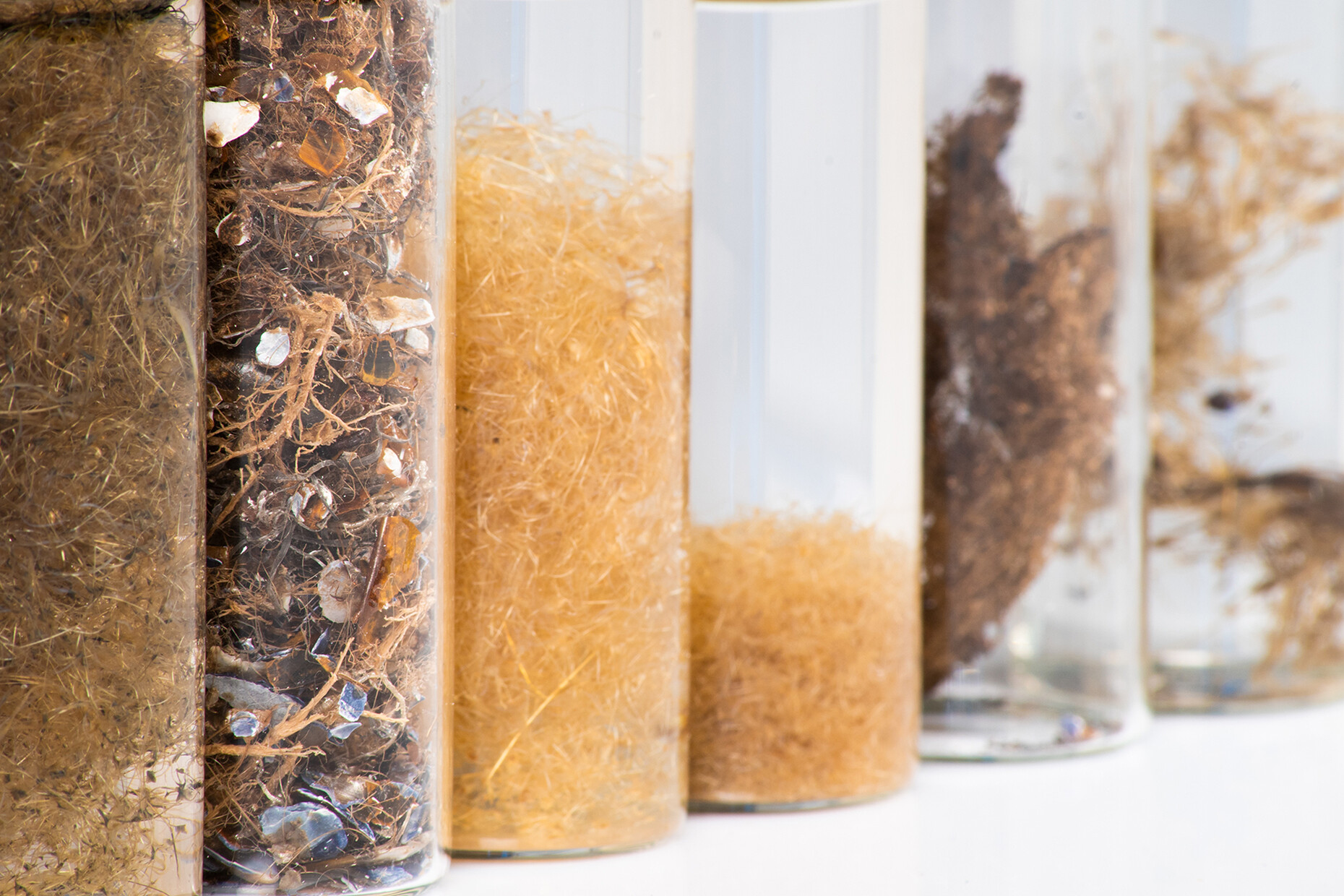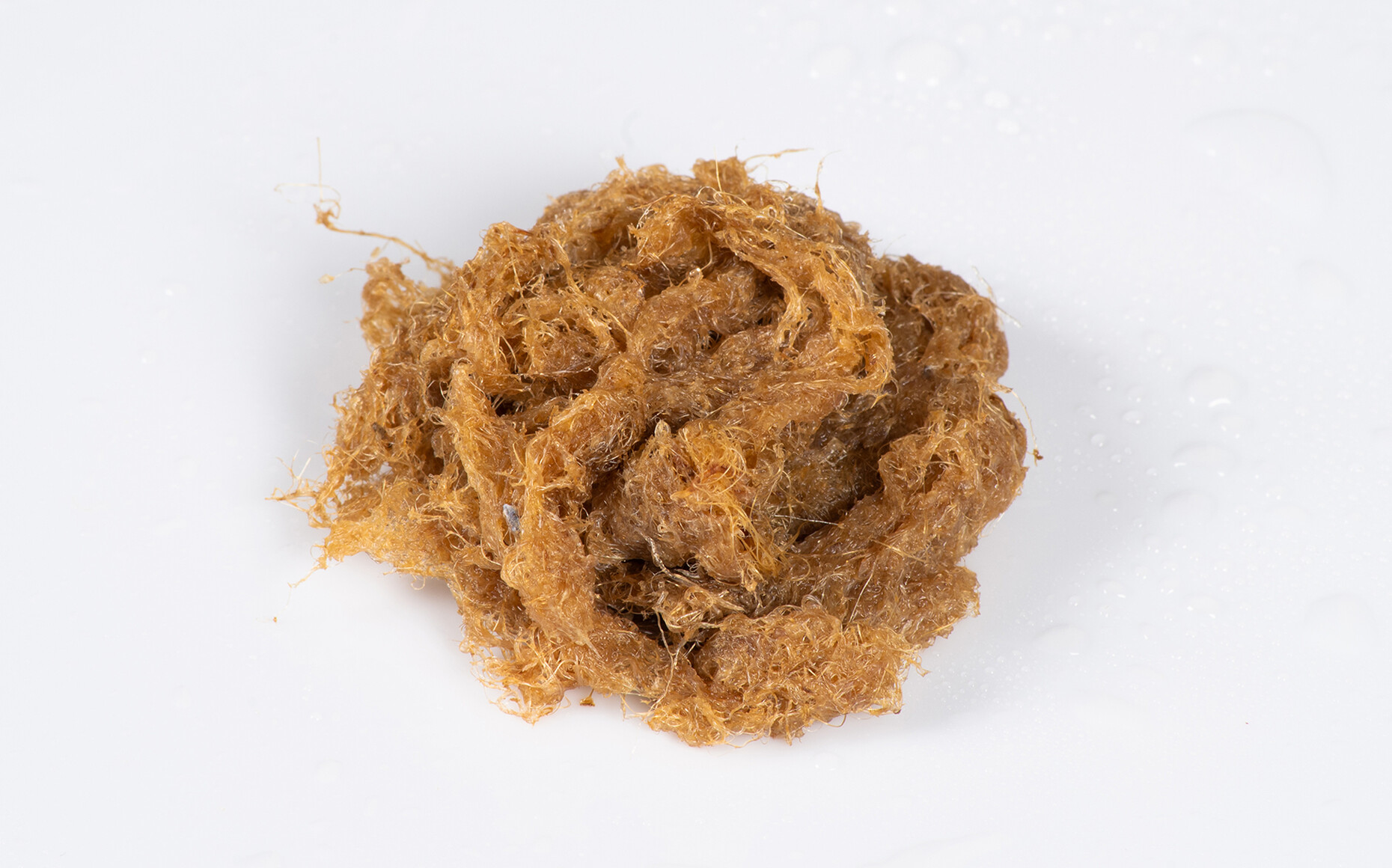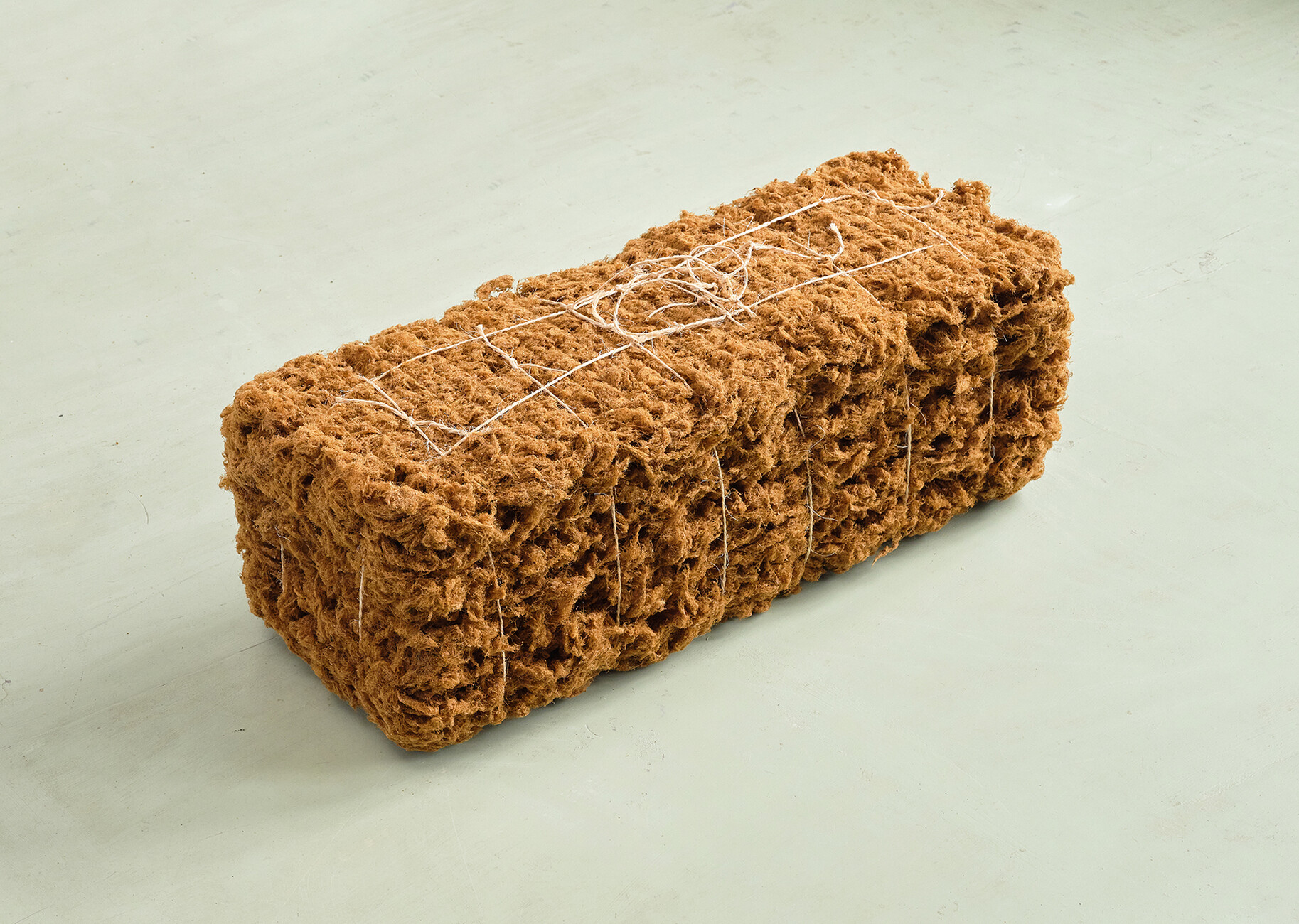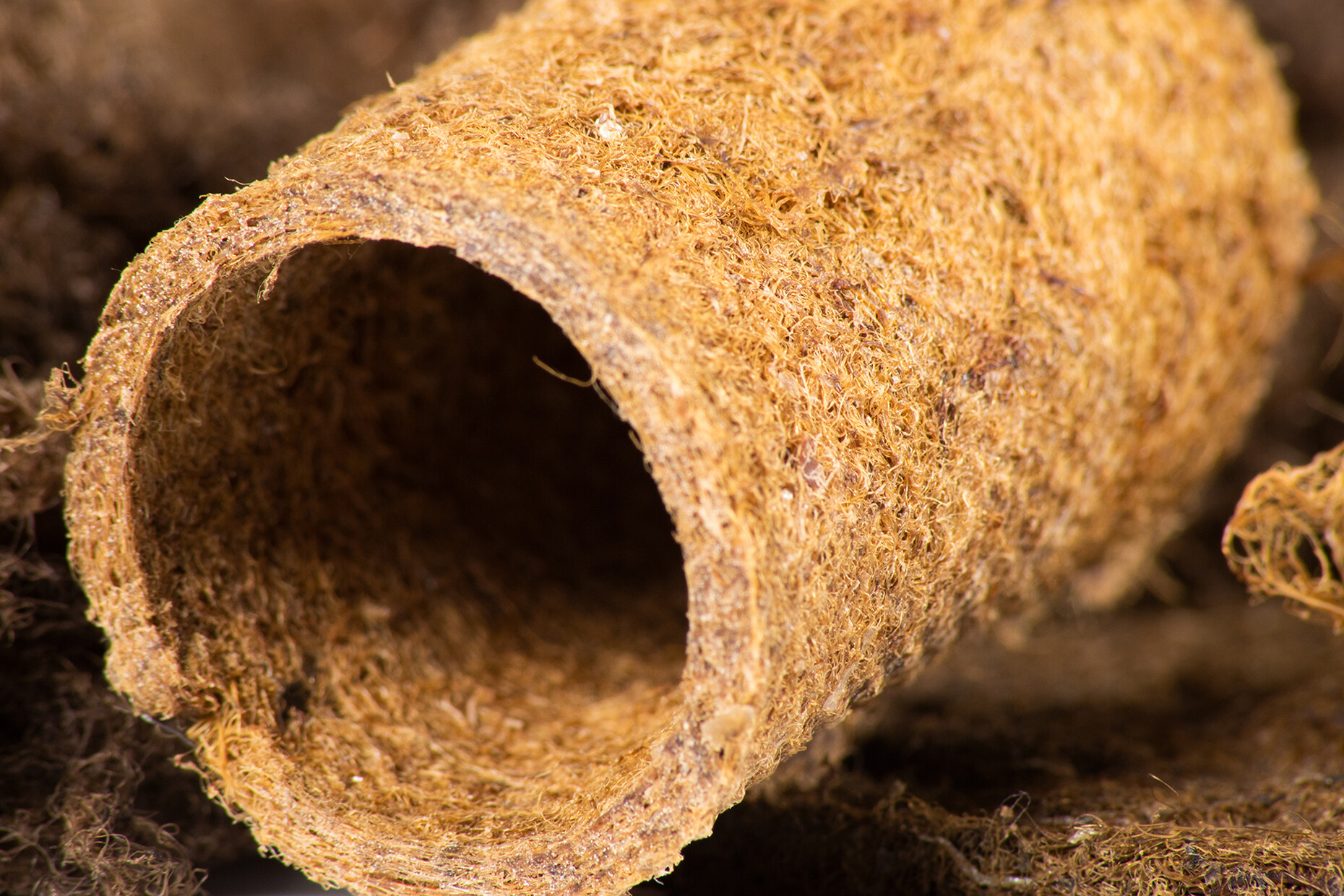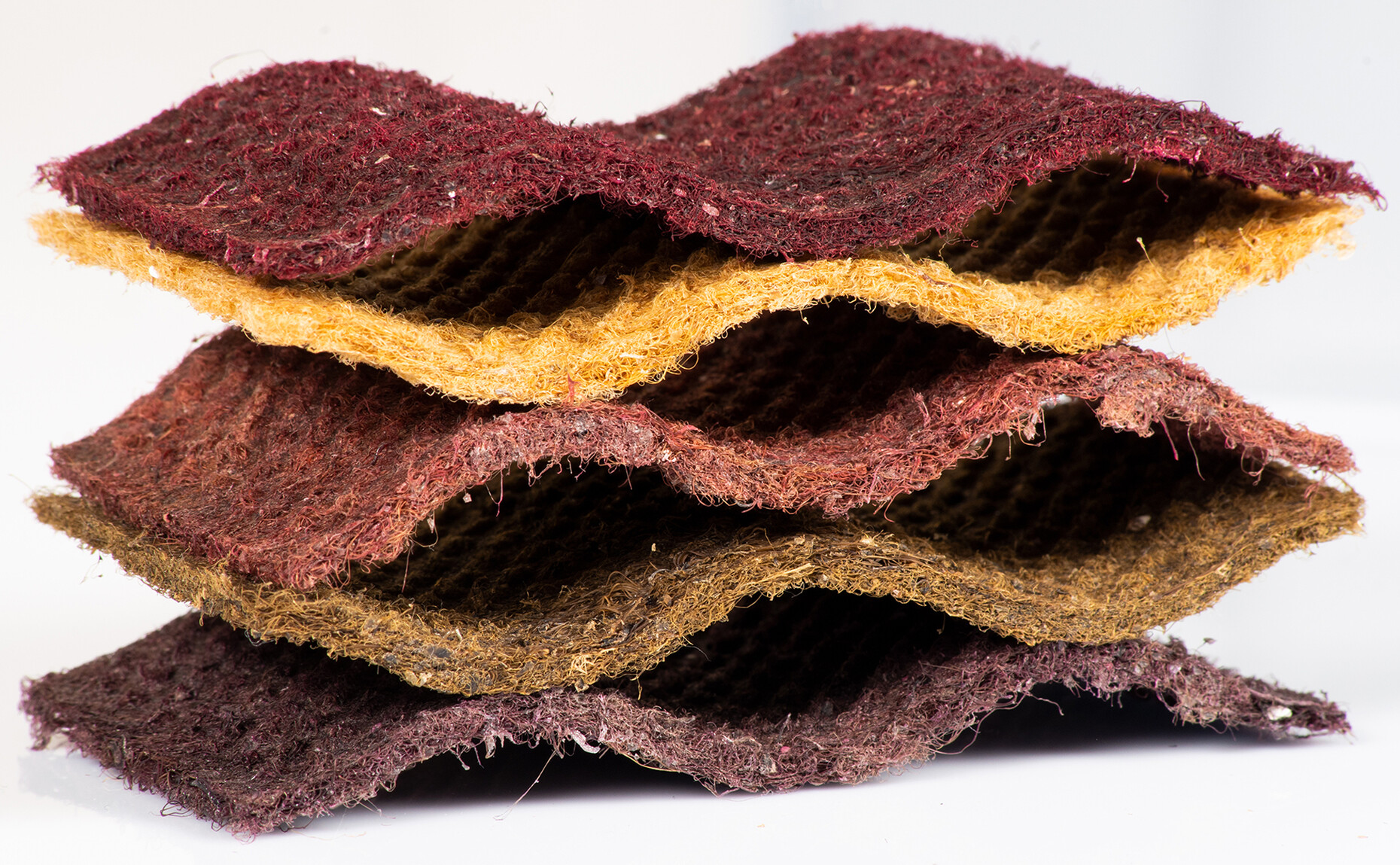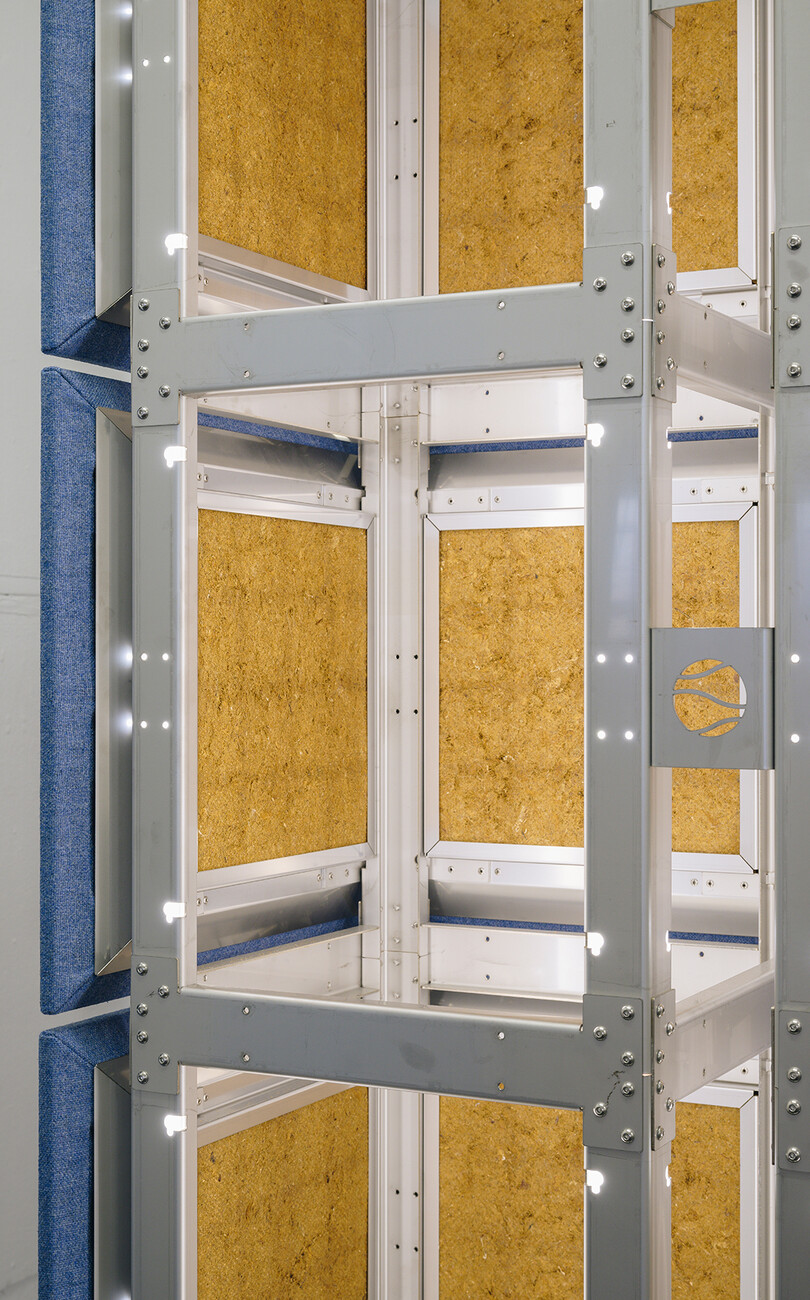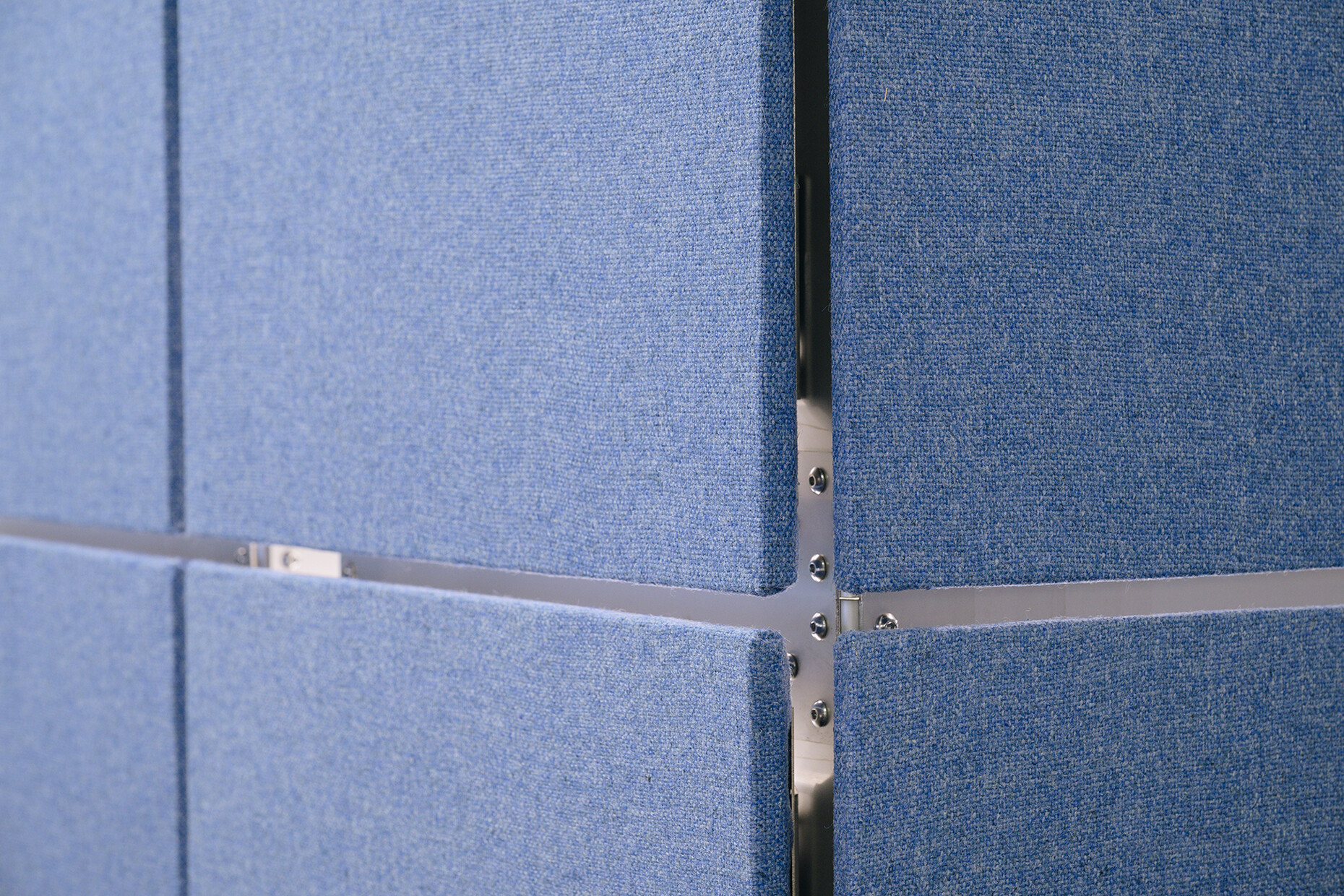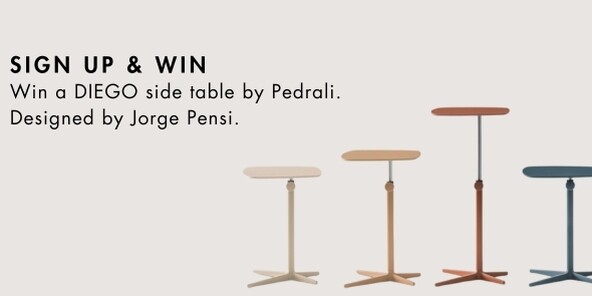SUSTAINABILITY
Silence from the depths
In the search for sustainable alternatives to synthetic fibres, it is worth taking a look underwater, to be precise at the mussel: in order to find a hold, like on rocks, it develops a secretion that hardens into adhesive fibres. These natural fibres are called ‘byssos’, which are considered inedible in the industrial processing of seafood and therefore usually end up in landfill. For interior designer Sander Nevejans, this meant a waste of potential. He began to research the properties of mussel silk. The result: the byssus fibres are very robust, lightweight and flame-retardant. They have acoustic and insulating features, are recyclable, renewable and biodegradable. Ideal for use in architectural and interior projects. In 2021, Nevejans founded the company Seastex Ltd. in London to provide a natural alternative to petrochemical-based textiles.
Seastex buys the mussel remains from the mussel farmers, cleans them and transforms the material into a homogeneous product that is suitable for creating acoustic products, for example. The tiles with a byssus core (ABC) can be used on walls, ceilings and as partition walls and can be moved flexibly. The young company also offers a free take-back service to return the byssus fibres to the cycle at the end of their useful life.
